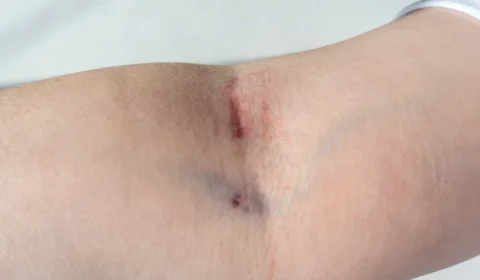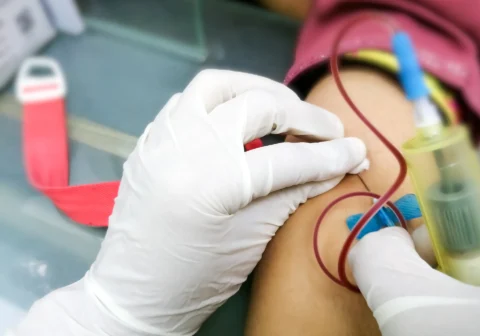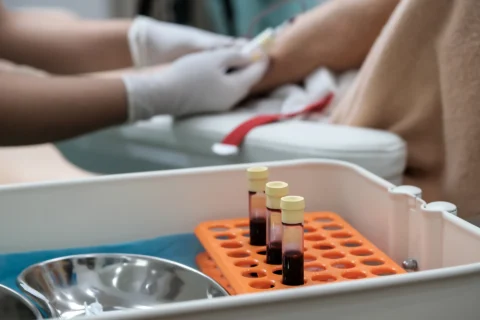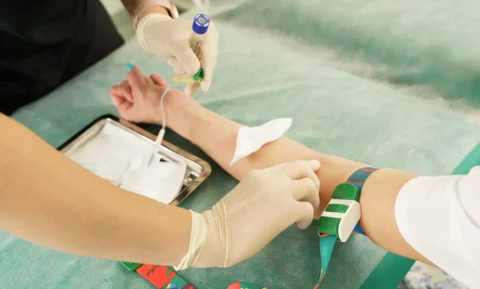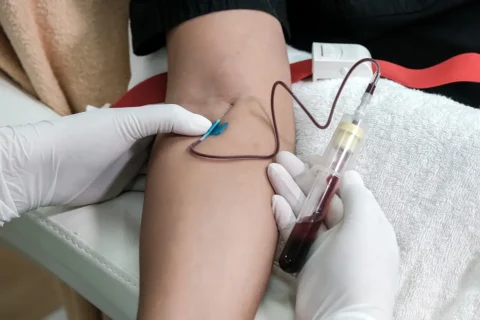The Rise of Holistic Skincare: Understanding Its Importance
An esthetician is a trained professional specializing in skincare, performing treatments that enhance the health and appearance of the skin. These experts assess individual skin types and conditions, providing services ranging from facials and chemical peels to microdermabrasion and hair removal.
While the traditional realm of esthetics focuses primarily on the surface and cosmetic appearance of the skin, the industry has witnessed a shift towards a more integrative, holistic approach.
Holistic skincare delves deeper than mere surface treatments. It embraces a comprehensive view, acknowledging the interplay between one’s overall health, lifestyle, and skin.
By emphasizing natural products, understanding the body’s intrinsic healing processes, and often integrating ancient practices like Ayurveda or Traditional Chinese Medicine, holistic estheticians aim to treat the root causes of skin issues rather than just the symptoms.
As we proceed, we’ll explore the journey of becoming a holistic esthetician, merging the principles of traditional skincare with a holistic philosophy.
Traditional vs. Holistic Esthetics: Choosing Your Path
In the realm of skincare, two prominent approaches have emerged, each with its unique principles, methods, and outcomes: Traditional and Holistic Esthetics.
While both disciplines have the same primary goal of enhancing and maintaining the skin’s health and appearance, their methodologies and underlying philosophies differ substantially. Let’s delve deeper to distinguish between these two esthetic avenues.
Traditional Esthetics
Traditional esthetics zeroes in predominantly on the skin’s physical attributes. Processes in this domain include actions like cleansing, exfoliating, and moisturizing.
Their treatments, such as facials and light chemical peels, primarily address the skin’s surface aiming for an enhanced outward appearance. You’ll typically find traditional estheticians at salons and day spas, delivering regular facials, beauty treatments, and other body-centric services.
Key Aspects of Traditional Esthetics:
- Focuses on physical attributes of the skin.
- Includes cleansing, exfoliating, and moisturizing.
- Offers treatments like facials, light chemical peels, and microdermabrasion.
- Primarily found in salons and day spas.
Holistic Esthetics
Diverging from the traditional approach, holistic esthetics advocates for a broader perspective on skincare, integrating a client’s total health and well-being into the equation.
In this realm, the skin isn’t an isolated entity but interlinked with body, mind, and spirit. Their practice, thus, hinges on a robust understanding of human anatomy, physiology, chemistry, nutrition, wellness practices, and the functions of different product ingredients.
Holistic practitioners tailor treatments to individual clients, weaving in aspects of their lifestyle, dietary patterns, emotional health, hormonal balance, and other physiological considerations.
Key Aspects of Holistic Esthetics:
- Adopts a comprehensive view of skincare, linking it with overall health.
- Emphasizes the interrelation between skin, body, mind, and spirit.
- Tailors treatments based on diverse factors like lifestyle and emotional health.
- Leverages natural products like botanicals, plant extracts, and essential oils.
In drawing a distinction, traditional and holistic esthetics both seek to nurture the skin but diverge in their strategies.
The former emphasizes immediate external improvements, whereas the latter commits to the client’s holistic health, targeting enduring health and aesthetic outcomes.
Educational Path to Becoming a Holistic Esthetician
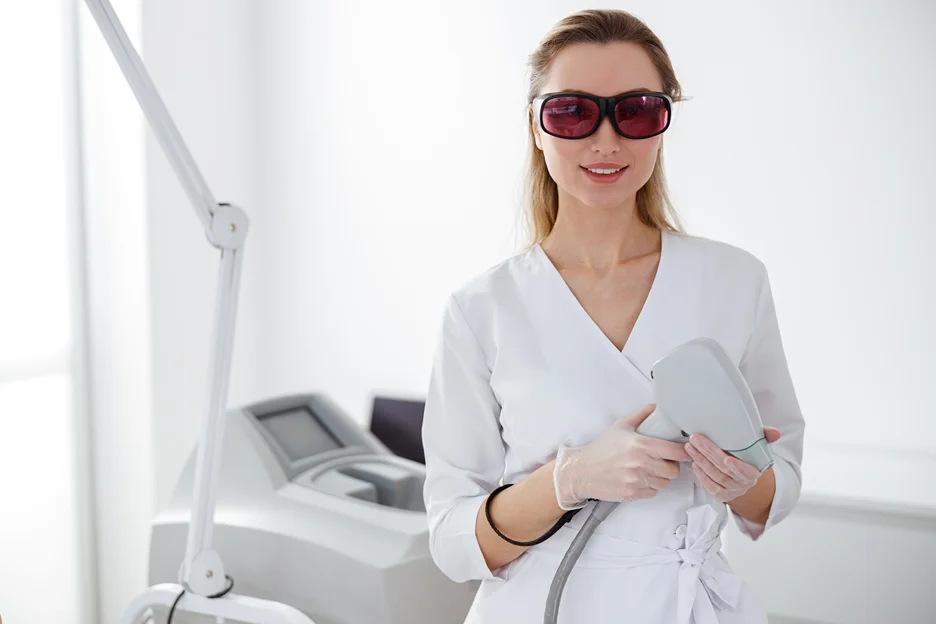
In the pursuit of a holistic esthetics career, certain educational milestones and requirements must be met. These foundational steps not only equip budding estheticians with the necessary knowledge and skills but also ensure they uphold the high standards of the profession.
1. Basic Education Requirement
Every journey begins with the basics. Before pursuing specialized training, aspiring holistic estheticians need a high school diploma or its equivalent, a GED. Typically, you should be 16 years or older to join a holistic esthetician training program.
2. Enrolling in an Esthetician Training Program
State-approved esthetician training programs are the next logical step. These courses are comprehensive, delving into safety measures, skin conditions, application techniques, sanitation, hair removal, waxing, and spa treatments.
They may also touch on supplementary areas like business management, sales, accounting, psychology, and sociology. While there are many similarities between traditional and holistic esthetician courses, it’s crucial to find a program that aligns with your holistic ambitions.
3. Specialization in Holistic Esthetics
Distinct from general esthetician training, some programs specialize in holistic esthetics. These courses are an immersion into the world of natural skincare products and treatments. Crucial topics covered include human anatomy, skin physiology, age-specific facials, aromatherapy, reflexology, nutrition, and an extensive overview of natural skincare products.
4. Licensing Examination
Upon completing the training, a crucial step awaits the licensing examination. This involves both a written and hands-on practical exam. The specific requirements for licensure vary by state but typically fall under the purview of the state cosmetology board. Training hours might range between 250 to 600, contingent upon individual state mandates.
5. Lifelong Learning and Continuing Education
The learning doesn’t cease once you become an esthetician. Some states necessitate periodic continuing education courses. These courses are vital to stay abreast with evolving techniques and to reinforce existing knowledge.
In your quest to become a holistic esthetician, thorough research is imperative. Ensuring your chosen program meets state licensure prerequisites is crucial. Armed with the right education, the world of holistic skincare awaits your expertise.
What To Expect From a Holistic Esthetician School
When you hear “esthetician,” you might think primarily of skincare and beauty treatments. However, the realm of holistic esthetics takes this a step further, integrating the principles of whole-body health and well-being.
If you’re considering a career in this field, it’s vital to understand what holistic esthetician schools offer and how they differ from their traditional counterparts.
Holistic Focus: Mind, Body, and Spirit
Holistic esthetics does not isolate skin health from overall physical and mental well-being. Instead, it views them as interconnected.
In holistic esthetician schools, the curriculum emphasizes the importance of understanding a client’s overall health. This broader perspective can lead to more personalized and comprehensive skincare solutions.
Educational Insight:
- Study the interconnection between skin health and overall physical and mental well-being.
- Learn the principles of holistic health and how they apply to skincare.
Comprehensive Training in Diverse Techniques
Holistic esthetician schools aim to provide a rounded education. Students are trained in a plethora of techniques, from the basic (like skin analysis) to the specialized (such as aromatherapy or reflexology). This ensures a well-rounded skill set that can address a wide range of client needs.
Educational Insight:
- Explore a wide spectrum of skincare and therapeutic techniques.
- Understand the foundational theories behind each method.
Emphasis on Practical Application
Theory is crucial, but practical application solidifies learning. Many holistic esthetician schools prioritize hands-on training. This approach allows students to apply their theoretical knowledge in real-world scenarios, enhancing skill retention and building confidence.
Educational Insight:
- Participate in practical sessions, often with real clients.
- Benefit from feedback and guidance of experienced instructors.
Supportive and Nurturing Educational Environment
Learning is optimized in environments where students feel supported and encouraged. Holistic esthetician schools often pride themselves on creating nurturing spaces where students can grow, ask questions, and thrive.
Educational Insight:
- Experience a positive, encouraging academic atmosphere.
- Develop soft skills such as communication, empathy, and client relationship management.
Choosing the Right School: Tips for Prospective Students
- Research: Begin with thorough groundwork. This includes reading reviews, seeking recommendations, and visiting potential schools.
- Curriculum Analysis: Examine the courses offered. Ensure they align with your interests and the industry’s holistic approach.
- Prioritize Practical Experience: Hands-on training is invaluable. Ensure your chosen school offers ample opportunities for practical sessions.
- Check Accreditation: Accreditation ensures that the school adheres to specific educational standards. Schools recognized by esteemed bodies like the National Accrediting Commission of Career Schools and Colleges (NACCAS) are typically held in higher regard.
Holistic Esthetician Licensing and Career Overview
Holistic estheticians are skin care experts who provide services that blend traditional skin treatments with a focus on overall well-being. Let’s dive into the licensing requirements, duties, earning potential, and career outlook for this profession.
Licensing
- Requirements vary by state, with standards set by state cosmetology boards.
- Typically, passing both written and practical exams is mandatory.
- For those looking to delve deeper, some higher education institutions offer master’s degrees in esthetics.
- Graduate training in esthetics equips students to handle intricate skin conditions and execute advanced cosmetic procedures.
- Training hours range from 250 to 600, contingent on the state.
- After completing a program, a Master Esthetician Certificate is awarded.
Job Duties
- Estheticians are tasked with performing facial and body treatments to elevate clients’ skin health and appearance.
- Hair removal, such as waxing, is another key service.
- Part of the role may involve body massages targeting various areas, from the neck to feet.
- Crafting customized skincare solutions, tailored to individual client needs, is pivotal.
- Protective wear is often worn during treatments to shield from chemicals.
- The work schedule can be diverse, encompassing nights, weekends, and holidays. Settings range from massage parlors and spas to medical clinics.
Earnings
- As of May 2021, data from the U.S. Bureau of Labor Statistics indicates an average annual earning of $41,700 for holistic estheticians.
- On the lower spectrum, earnings might be around $23,100, while the higher end sees figures close to $67,000, with variations based on location.
Career Outlook
- The demand for holistic estheticians is projected to see a growth rate of roughly 17% by 2031.
- This growth is spurred by an amplified inclination towards treatments that not only enhance appearance but also combat aging, reduce stress, and preserve youth.
- A noteworthy trend is the turn towards natural treatments, akin to those available at stores like Whole Foods. Such treatments are perceived as gentler and less damaging than their conventional counterparts.
- Over the next decade, this enthusiasm for natural treatments is anticipated to maintain an upward curve.
In essence, the holistic esthetician field offers a promising trajectory for those keen on combining skincare expertise with holistic wellness principles. It presents a compelling blend of personal fulfillment and professional growth.
Boost Your Esthetic Expertise at FACE Med Store

Dive deeper into the world of aesthetics with tailored online training courses exclusively designed for aspiring estheticians. FACE Med Store not only offers knowledge but equips you with state-of-the-art medical tools, ensuring you’re always a step ahead in the industry. Partner with us and ensure you’re backed by quality, knowledge, and innovation.
Ready to Elevate Your Skills?
Join FACE Med Store’s online courses now and embrace the next level of esthetic training. Stay ahead, stay informed. Contact us today to find out more.
